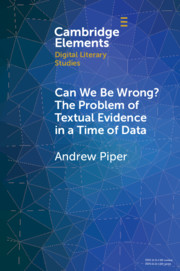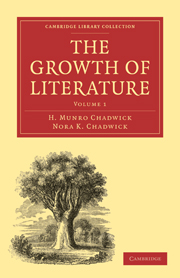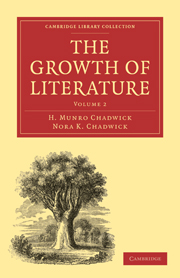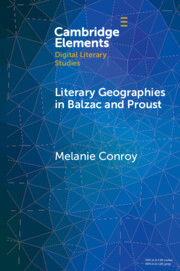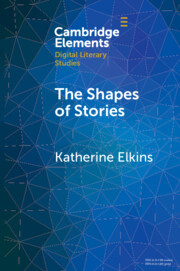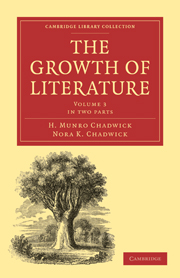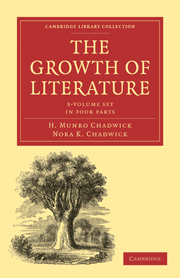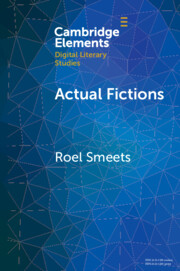Can We Be Wrong? The Problem of Textual Evidence in a Time of Data
£17.00
Part of Elements in Digital Literary Studies
- Author: Andrew Piper, McGill University, Montréal
- Date Published: November 2020
- availability: Available
- format: Paperback
- isbn: 9781108926201
£
17.00
Paperback
Other available formats:
eBook
Looking for an inspection copy?
This title is not currently available on inspection
-
This Element tackles the problem of generalization with respect to text-based evidence in the field of literary studies. When working with texts, how can we move, reliably and credibly, from individual observations to more general beliefs about the world? The onset of computational methods has highlighted major shortcomings of traditional approaches to texts when it comes to working with small samples of evidence. This Element combines a machine learning-based approach to detect the prevalence and nature of generalization across tens of thousands of sentences from different disciplines alongside a robust discussion of potential solutions to the problem of the generalizability of textual evidence. It exemplifies the way mixed methods can be used in complementary fashion to develop nuanced, evidence-based arguments about complex disciplinary issues in a data-driven research environment.
Customer reviews
Not yet reviewed
Be the first to review
Review was not posted due to profanity
×Product details
- Date Published: November 2020
- format: Paperback
- isbn: 9781108926201
- length: 75 pages
- dimensions: 228 x 152 x 6 mm
- weight: 0.144kg
- contains: 13 b/w illus.
- availability: Available
Table of Contents
Introduction, or What's Wrong with Literary Studies?
Part I. Theory:
1. Probable Cause
Part II. Evidence Eve Kraicer, Nicholas King, Emma Ebowe, Matthew Hunter, Victoria Svaikovsky, and Sunyam Bagga
2. Machine Learning as a Collaborative Process
3. Results
Part III. Discussion:
4. Don't Generalize (from Case Studies): The Case for Open Generalization
5. Don't Generalize (At All): The Case for the Open Mind
Conclusion: On the Mutuality of Method.
Sorry, this resource is locked
Please register or sign in to request access. If you are having problems accessing these resources please email [email protected]
Register Sign in» Proceed
You are now leaving the Cambridge University Press website. Your eBook purchase and download will be completed by our partner www.ebooks.com. Please see the permission section of the www.ebooks.com catalogue page for details of the print & copy limits on our eBooks.
Continue ×Are you sure you want to delete your account?
This cannot be undone.
Thank you for your feedback which will help us improve our service.
If you requested a response, we will make sure to get back to you shortly.
×
